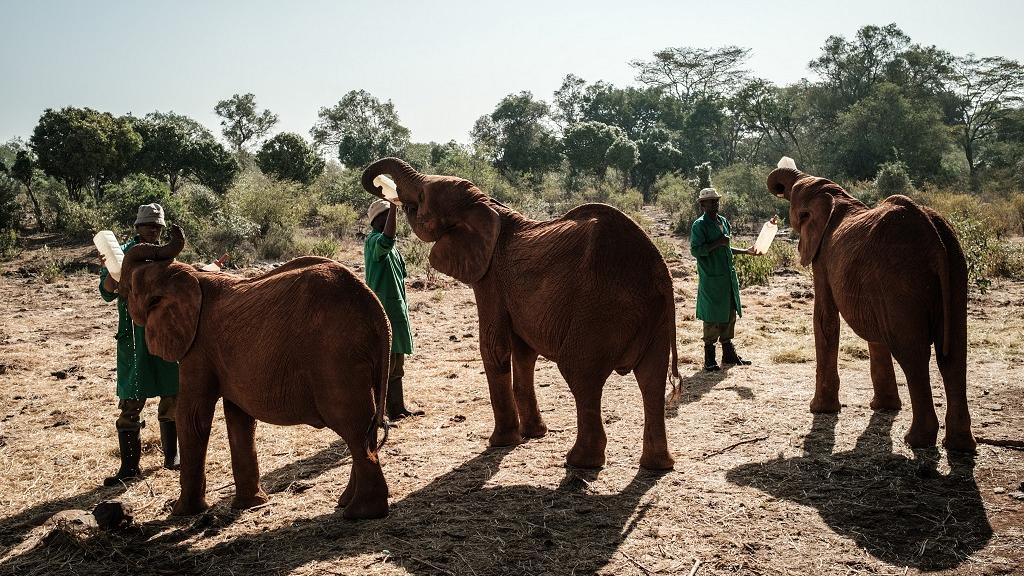A reserve home to orphaned baby elephants in Kenya. In the absence of their mothers, the baby elephants rely on human care to survive.
A rather expensive daily ration that park managers try to support thanks to the income generated from tourist activities. But for nearly three months, the site has not received any visitor. A risk for the conservation of the species and jobs.
“We are lucky we have our jobs but we are just worried the boss might end up not having enough cash to pay us because there are no tourists coming in so that is a big worry. We are lucky we still have our jobs and we thank God for that but we hope COVID-19 ends soon so that life goes back to normal”, said Edwin Lusichi, Project Manager and Head Keeper at David Sheldrick Wildlife Trust.
We are lucky we still have our jobs and we thank God for that but we hope COVID-19 ends soon so that life goes back to normal.
Kenya receives just over a million visitors every year. Despite a tense political climate, especially during election time, the country is one of Africa’s leading safari and eco-tourism destinations.
Travel restrictions due to the coronavirus allow conservation establishments such as this one to focus a little more on animal care. But overall, they are seeing an increase in poaching.
“Sadly we are seeing an increase in illegal activities, including bushmeat, and methods such as using wire snares don’t discriminate amongst the species they target so endangered animals such as elephants, the babies behind me and giraffes can get caught in the fray’‘, Kirsty Smith, Project administrator at David Sheldrick Wildlife Trust said.
The fears of conservationists are taken very seriously by Kenyan authorities.
Despite containment measures still in force across the country, activities of rangers in national parks have been classified as essential to combat organized gangs of poachers at a time of general decline in activity.










Discussion about this post